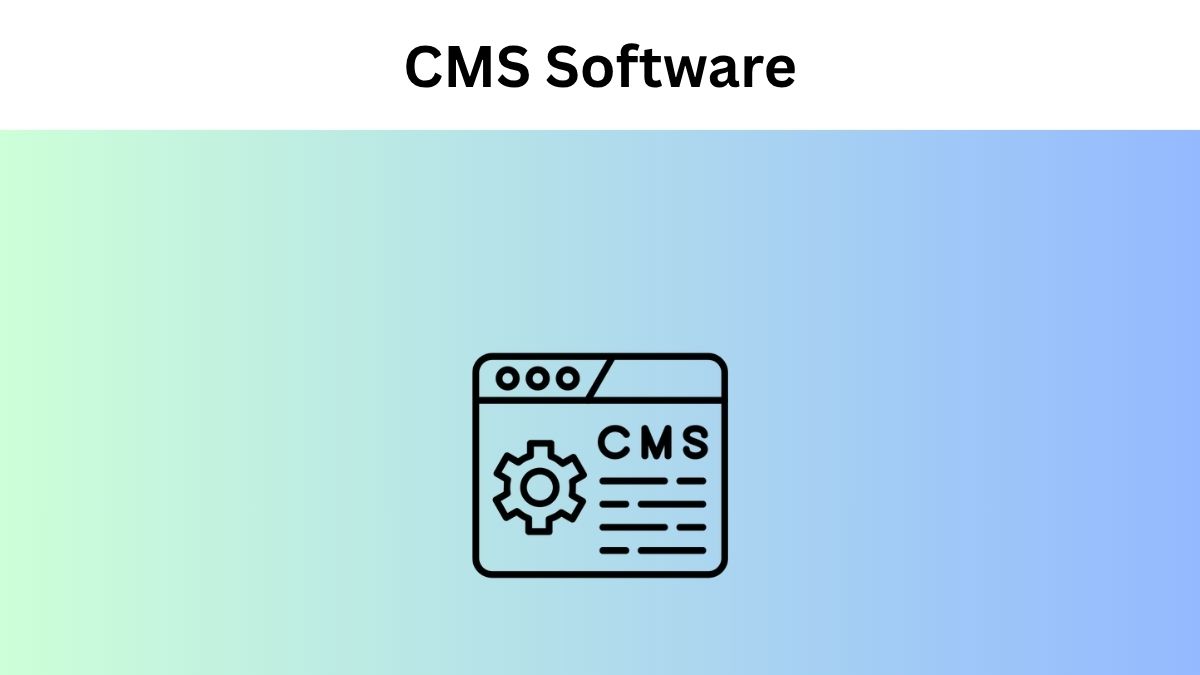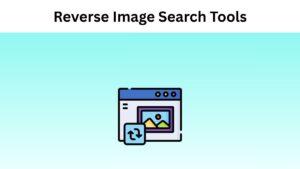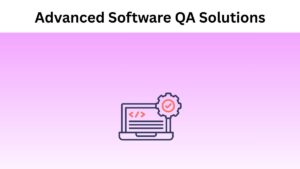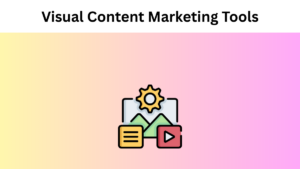Are you seeking the ideal CMS software to create a seamless website for your business? A CMS Software or platform enables you to create a website without needing to understand any code (at least for most of them). A wide range of CMS options is available in the marketplace, making it challenging to select the best CMS for your specific needs and preferences. Hence, in this article, we’ll explain why it’s essential to select suitable CMS platforms for your website.
What is a CMS Platform?
A CMS platform is a type of software that enables you to manage your site’s content and build a comprehensive website. Typically, web pages are programmed in HTML, JavaScript, and CSS programming languages. If you are seeking to develop a website without using a CMS platform, you have to learn how to code efficiently using these languages.
CMS platforms help users solve this issue by allowing them to develop a website without needing to code or learn a programming language.
15 Best CMS Software to Build a Website
WordPress.org

WordPress is a preferred and suitable CMS platform. It is considered the anticipated CMS platform, powering around 43.2% of websites on the World Wide Web. Also, do not confuse WordPress.com with WordPress.org.
WordPress.org is a freemium, open-source CMS originally built for blogging, but today it powers every website and online store. Despite this, WordPress.com is a hosting platform for your blog posts and vice versa. If you don’t know the distinguishing factor between the two, you need to check out the detailed comparison of WordPress.org and WordPress.com.
HubSpot CMS Hub

HubSpot CMS Hub is a comprehensive, integrated CMS solution designed for digital marketers and business owners. Because it is built on HubSpot’s CRM platform, which comprises a range of market-driven automation, sales, service, and functional tools. CMS Hub is an ideal solution for emerging businesses and large enterprises seeking a comprehensive platform to manage their websites.
Drupal

Drupal is a free and open-source CMS software. It’s the CMS behind some of the major websites, including The Economist’s site and multiple educational sites. Drupal is a great option for developers or individuals who can hire one. It is especially beneficial if you aim to develop a highly customized site that manages large amounts of data.
When comparing Drupal vs WordPress, Drupal stands out for its advanced flexibility and scalability, making it ideal for complex, data-heavy websites. While WordPress is often celebrated for its ease of use and beginner-friendly nature, Drupal offers a more tailored, robust solution for projects that require it. Additionally, it provides WordPress hosting. They offer a free installation package and can even assist you in transferring a current Drupal site.
Shopify

Shopify is a full-fledged, all-in-one hosted CMS platform; you won’t need to buy a hosting package, install any software, or manage updates and backups. If you’re looking to customize your Shopify store or need assistance with development, consider hiring a Shopify developer.
It features a drop-and-drop interface and supports in-store sales, making it ideal for businesses that operate both physical stores and online stores.
Also Read: Best 10 Online Store Management Tools for Retail Stores
WordPress.com

WordPress.com is a commercial and self-hosted variant of WordPress. You should not confuse WordPress.org, a free and open-source, self-hosted WordPress platform, with WordPress.
You can find out more details here if you’re unaware of the difference between WordPress.com and WordPress.org. With WordPress.com, you get an all-in-one CMS platform that is hosted for you. Additionally, you can purchase a domain name or utilize a free subdomain with WordPress.com branding.
Magneto by Adobe
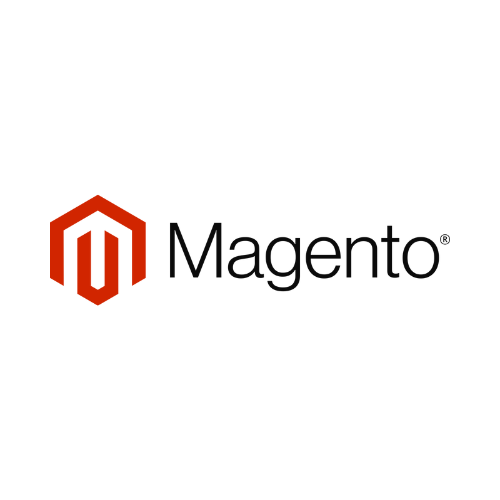
Adobe Magento is a powerful, robust open-source eCommerce platform from the renowned software solutions provider. You can download and install it on your personal web hosting account, named Magento Open Source.
If you are looking to use this CMS platform, then SiteGround Magento hosting won’t be an easy way to get started. Preferably, then you can pay for Magento Commerce. It offers built-in full-fledged support and is self-hosted, but it is quite expensive.
Bitrix24
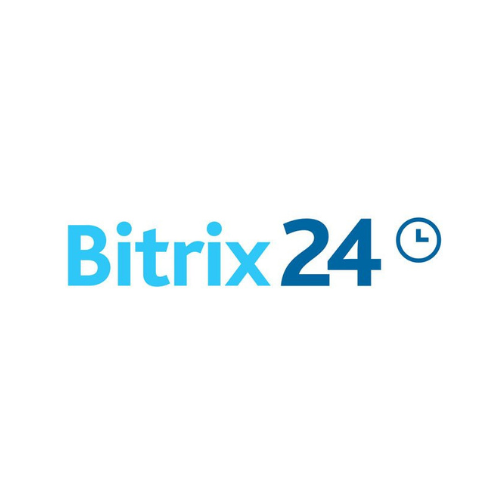
Bitrix24 is a comprehensive business suite that includes a CMS platform and valuable features, such as task management, project tracking, communication tools, and customer management. As a freemium version at the basic level, which powers up to 5 GB of online storage and 12 user accounts, it also offers a full-fledged solution for small enterprises and SMEs. If you’re looking for a CRM system, it would be a preferred choice.
vBulletin

vBulletin was initially used as a forum management platform, but it has since evolved into a comprehensive content management system. It includes community management via native forum features. Those who wish to build a community around their content should consider vBulletin their first choice.
It serves as a safe and secure platform, and the team behind it has over a decade of experience in platform development. It also supports some of the world’s leading communities. It’s a perfect solution for webmasters who want to create a large amount of content with a community help system.
Blogger

Blogger is an online CMS platform that allows multiple users to blog with time-stamped entries. It has been around. As you can tell from the name, it’s a CMS designed specifically for blogging. It’s a free service offered by Google.
Normally, blogs for bloggers use the domain name in the blog posts, though it’s possible to use your own domain name instead. Additionally, blogs can be accessed via a user-owned custom domain using DNS to direct traffic to Google’s servers.
Joomla

Joomla is another free and open-source CMS software that comes integrated with a wide range of templates and extensions. It is freemium and open source, but you will need a WordPress hosting service and a domain name.
It was released in 2005, and like WordPress, it has been evolving for several years since then. Joomla offers multiple features, and a variety of web hosting providers offer single-click installation. Although it’s packed with an ideal CMS platform for developers and experienced website builders, it may not be a great fit for beginners and newcomers.
BigCommerce

BigCommerce is a result-oriented SaaS eCommerce marketing platform that enables you to grow your business all the way to the next level. It enables companies to leverage online sales with approximately 80% less cost, time, and complexity than on-premise software.
BigCommerce hosts your site for you and provides the CMS platform itself. It also controls security and backups for you.
Also Read: Best 12 Sales Software Every Company Needs to Know
TYPO3
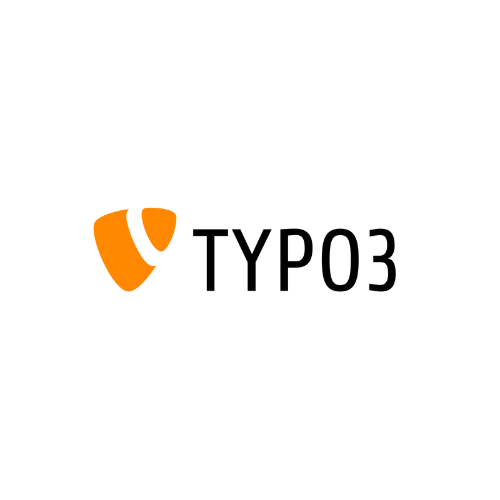
TYPO3 is a freemium, open-source CMS platform that has been around for more than a decade. It is an enterprise headless CMS, which means it’s very useful for both intranet sites (internal company sites) and websites.
There are enormous extensions available for TYPO3 that offer additional functionality and other relevant tactics. Leading SMEs and enterprises worldwide trust TYPO3. Its stability and modern features, along with top security ratings and comprehensive service offerings, make TYPO3 a safe, secure choice that effectively streamlines business functions with a high level of trust.
Ghost

You may have heard it referred to as a “headless CMS,” which may sound strange. This means that the CMS platform doesn’t ensure that content is delivered in a specific way.
Furthermore, the content you have written or the data you have produced can be displayed on a website, but it could also be sent to a mobile app or something else entirely. If you’re not involved in development, though, or you want to use Ghost as a blog post publishing platform, you don’t have to worry about the implications and other relevant aspects of this CMS platform.
Contentful

Contentful is an elegant, headless CMS platform, meaning content is not directly attached to web pages. Instead, it uses an Application Programming Interface (API) to represent content as data. As a result, the platform has a steep learning curve for non-technical users.
It is well-suited for companies or individuals to create a customized website that implements relevant digital marketing platforms. A notable example is the Scandinavian Airlines System website, where visitors can not only book a flight and check in, but also download the SAS app.
Sitecore
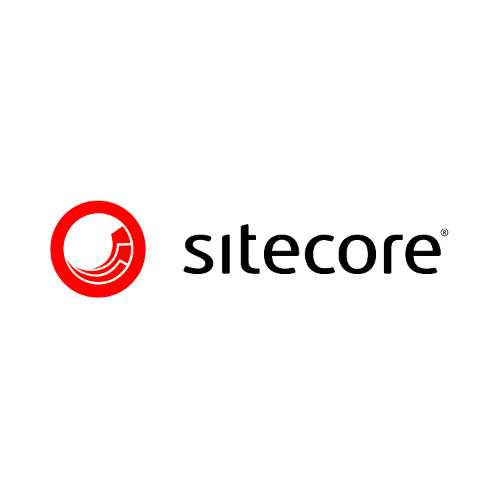
Sitecore is an enterprise-grade CMS in the market, built on ASP.NET, similar to Contentful. This platform offers content development strategies for various digital platforms. The only distinguishing factor is that the flexible CMS integrates multiple digital marketing tools more than other relevant CMS platforms.
Precisely, Sitecore is a CMS platform, which is a great aspect for large-scale companies that aren’t on a budget. An example is a telecommunications company whose website offers in-depth information and updates, along with high-resolution images of each product, and targets multiple consumer segments.
Also Read: What is Custom Software Development? – A Comprehensive Guide
Conclusion
Indeed, after introducing multiple content management systems, choosing the right CMS platform involves several factors and tactics. Hence, you can choose any of the CMS from the list mentioned above to sustain your business to the next level.
